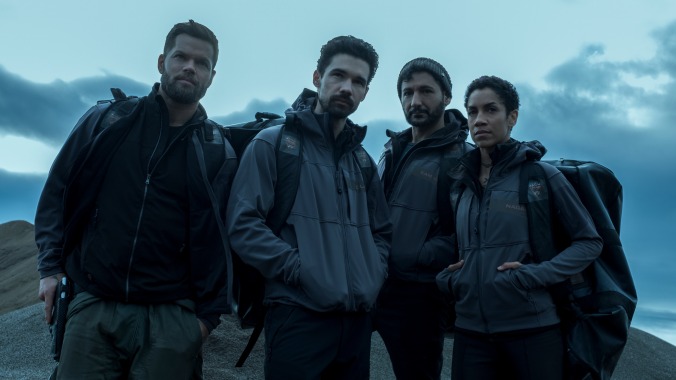The Expanse has a new home, but it’s as excellent as ever
The Expanse is still one of the best science fiction series out there

On The Expanse, every choice has weight. Sometimes literally. Early in the show’s compelling fourth season, a character decides to leave her spaceship home and go planetside. It’s a decision her crewmates have made multiple times before, but in Naomi Nagata’s (Dominique Tipper) case, there are special circumstances. As a Belter, Naomi was born and raised in low-gravity environments, which means that her body hasn’t built up the necessary muscle mass to endure planetary gravity. The series hasn’t lost its sense of scope since it left the SyFy channel for Amazon Prime. If anything, it’s broadened its horizons, taking in new worlds and the political strife of multiple systems. Yet a small but meaningful amount of tension is generated out of wondering if a person can walk across level ground without collapsing.
Naomi’s struggles, and the attention paid to those struggles, is emblematic of what makes The Expanse so effective. The show’s canny use of consequences ensures that its wilder sci-fi concepts exist in a context that grounds them without diminishing their impact. Even more importantly, those consequences always exist for narrative purposes. Information is never introduced simply for its own sake, but rather to ensure that the viewer is constantly aware of the cost of all this space travel and terraforming. Unlike the pulp fantasy of Star Wars or the utopian vision of Star Trek: The Next Generation, The Expanse is a fictional future that takes what we already know about humanity and the systems we cling to, and just gives us more room to fuck everything up.
Season four picks up months after the end of season three. The Sol Ring, alien technology that offers a gateway to a galaxy untouched by human concerns, is complete, and refugees are flocking to the new opportunity that galaxy represents. Worried about the potential for another proto-molecule disaster, U.N. Secretary Chrisjen Avasarala works to keep access to the Ring restricted, but some ships break through. When a group of Belters sets up a colony on a lithium-rich planet, they inadvertently discover evidence of an alien civilization—a civilization that might have ties to everything Avasarala is working to avoid. She sends James Holden and the crew of the Rocinante to investigate, along with a team of U.N. scientists and peace-keepers to begin “negotiations” with the settlers. Meanwhile, Camina Drummer and Klaes Ashford hunt smugglers to keep the peace between the Belt and Earth, and Bobbie Draper does her best to acclimatize to civilian life on Mars.
That “meanwhile” is important. The show remains strong, but if the fourth season has a major flaw, it’s the number of side plots running adjacent to the main focus. Season three remains a high-water mark for the series because its subject, the Ring, brought nearly every major character into its orbit. But while the after-effects of the Ring’s existence serve as a thematic connection, the actual stories in season four are considerably more disparate, with multiple character groupings existing in isolation, separate from one another outside the occasional news story and conversational reference.








































